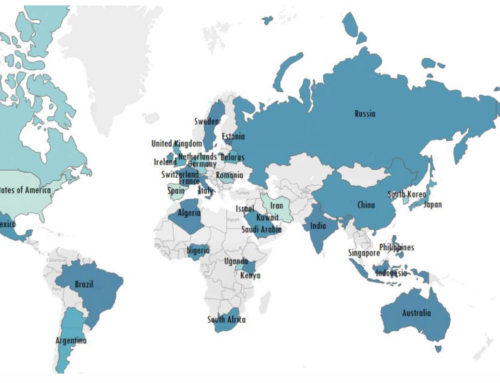History may not repeat itself, but it clearly does rhyme. During the dot-com bubble, Board of Governors of the Federal Reserve System Chairman Alan Greenspan famously observed that investors were the victims of “irrational exuberance.” This observation is evidently the case with cryptocurrencies today.
A recent study suggests that the “vast majority” of initial coin offerings (ICOs) are in fact fraudulent schemes. But where stocks are regulated by the U.S. Securities and Exchange Commission (SEC), and commodities by the U.S. Commodity Futures Trading Commission (CFTC), cryptocurrencies lack an effective regulatory body. This absence suggests the need for new institutional governance that properly understands the technical and economic issues driving cryptocurrencies.
As the range of ICOs has broadened and deepened, many new and established companies have begun exploring opportunities for using ICOs as a means to fundraising. Indeed, the main driver of ICOs has been global access to investor funds. Consider, for example, that the messaging app Telegram raised $1.7 billion in March of this year. The capacity to tap a liquid market without the need for intermediaries has provided a wide range of new and established companies with deep pools of capital.
…
Diverging Regulation
Forecasting future SEC guidance in the United States is difficult, but the common view is that the vast majority of ICOs are subject to U.S. securities laws. A sporadically aggressive posture by the SEC has served as a red flag to early-stage companies that might seek to raise funds through the sale of tokens. Although it is true that a legal framework for overseeing ICOs is slowly starting to take shape, most governments are not entirely sure how to manage the space.
One growing fear is that overregulation will undermine innovation by suppressing risk-taking. The rapid ascendancy of ICOs and their ability to raise funds for budding start-ups has radically democratized access to capital in new and innovative ways. This suggests the need for a different set of regulatory obligations specifically designed to allow smaller cash-poor companies to raise funds from a wide range of funders.
…
Going forward, we can be sure that ICOs and the cryptocurrency market as a whole will be increasingly subject to regulation. This is a very good thing. Regulating cryptocurrencies will mean that the herd-driven volatility exciting the market will decrease even as the value of cryptocurrencies continues to expand. Nonetheless, the current non-scalability of blockchains means that there remains significant work ahead. Add to this concern the fact that most cryptocurrencies have no intrinsic value beyond speculation, and this leaves room for tremendous disruption ahead.
These segments are pulled from an article originally published with the Penn Program on Regulation, housed at the University of Pennsylvania Law School. It is authored by Daniel Araya, Senior Partner at the World Legal Summit.





